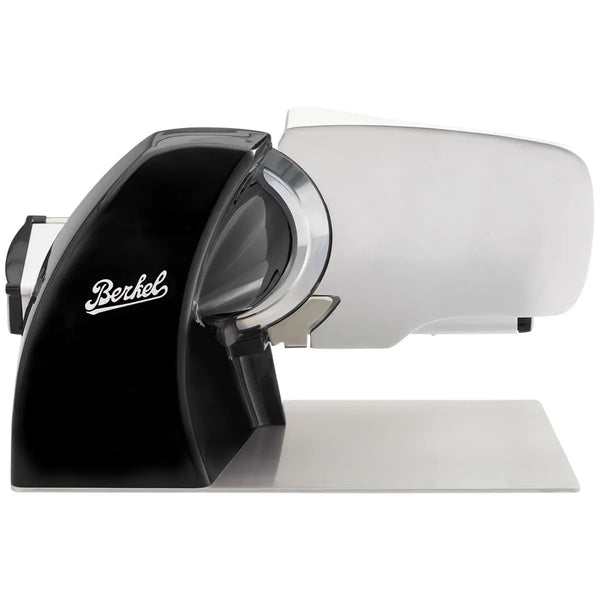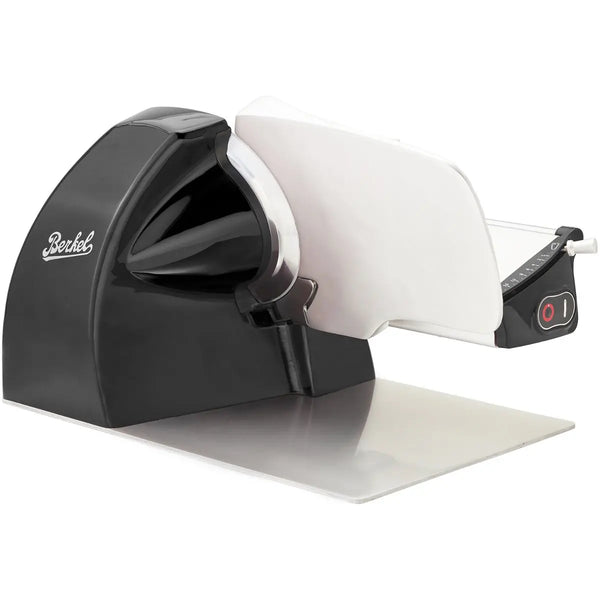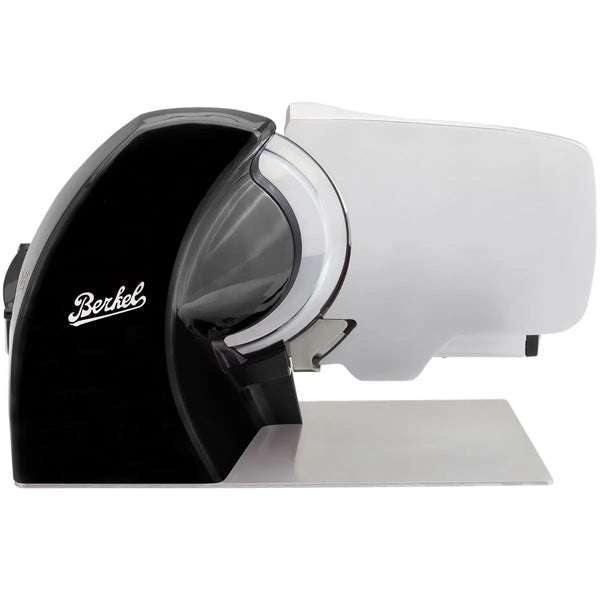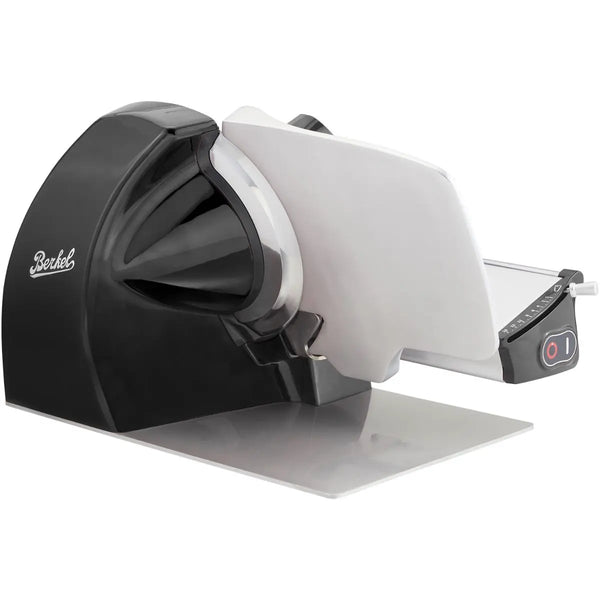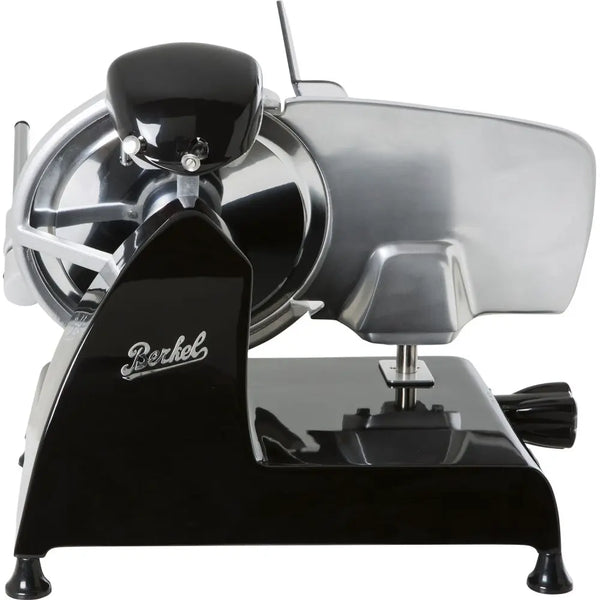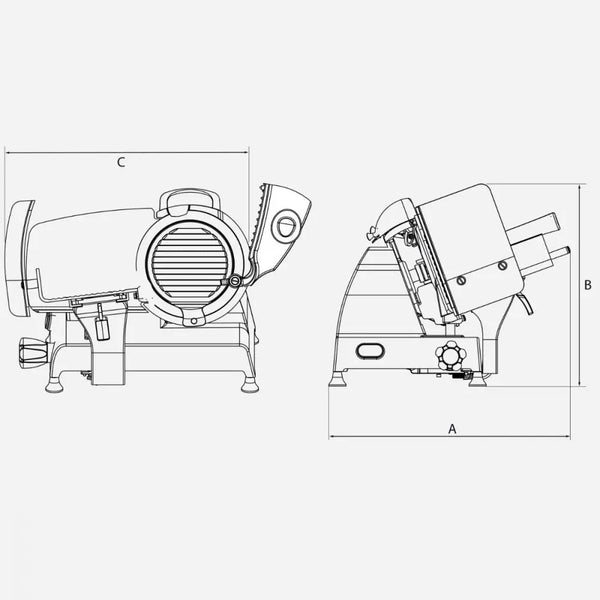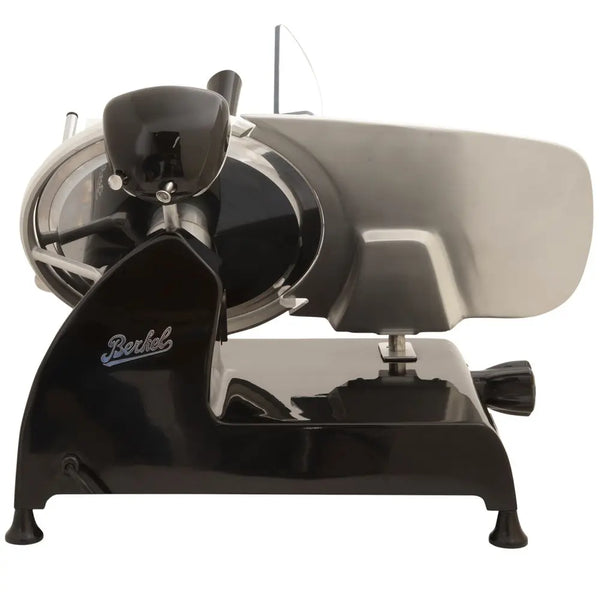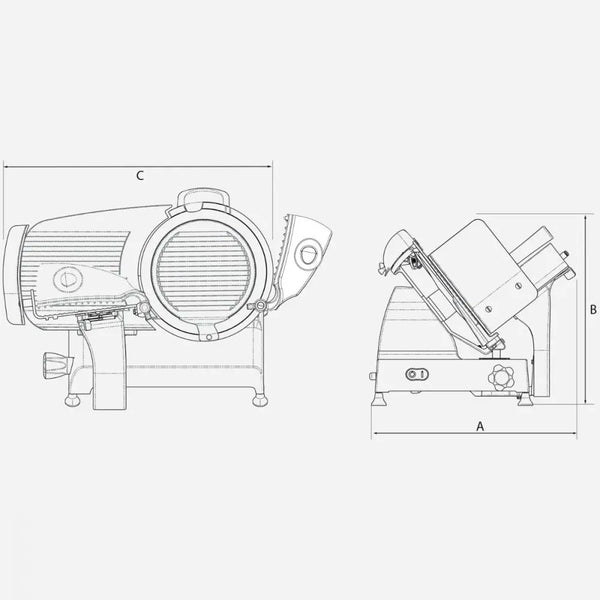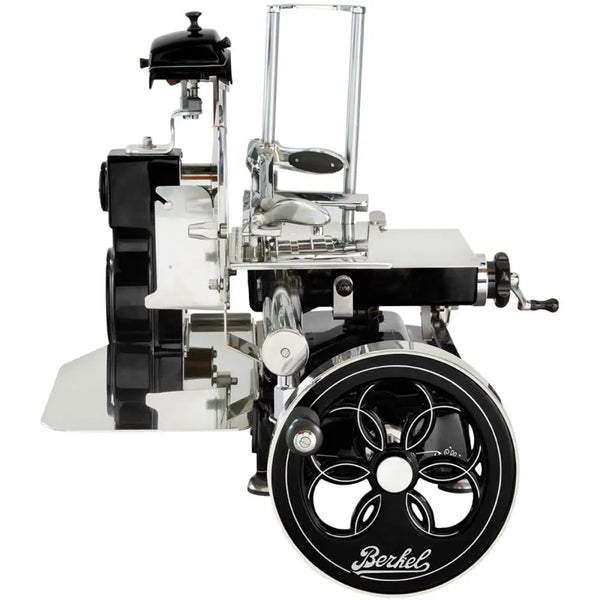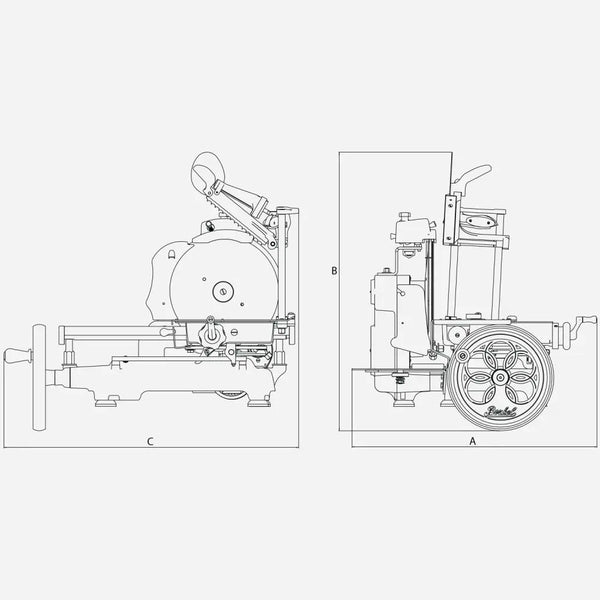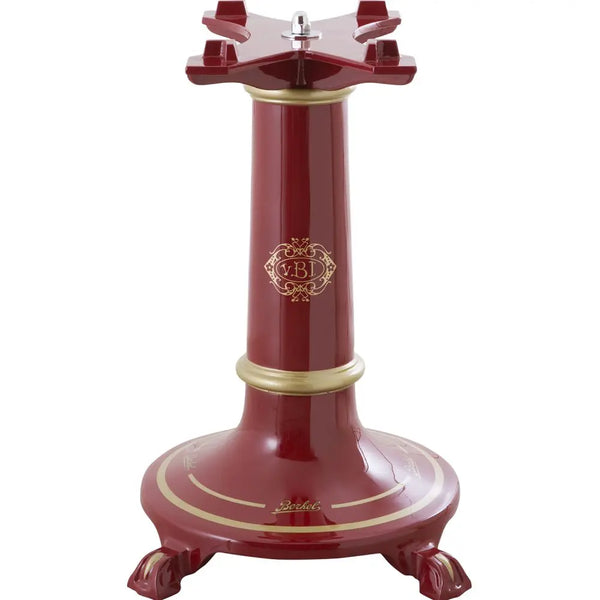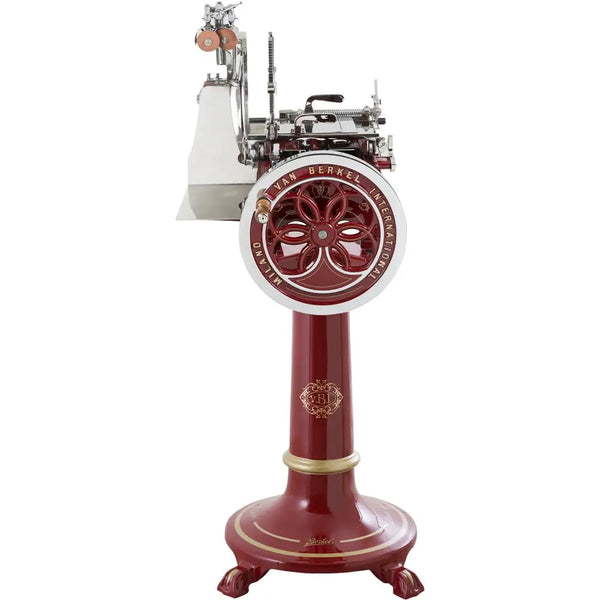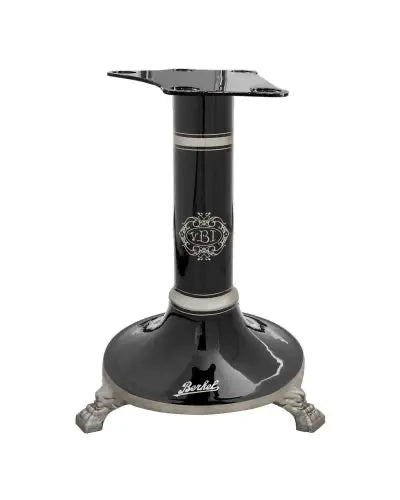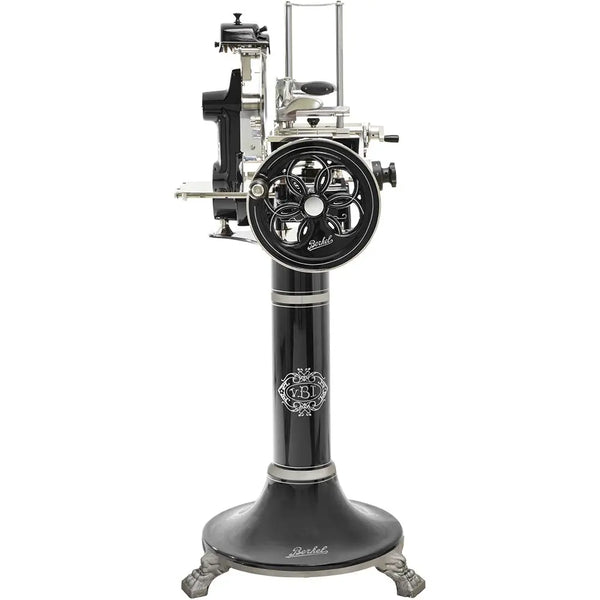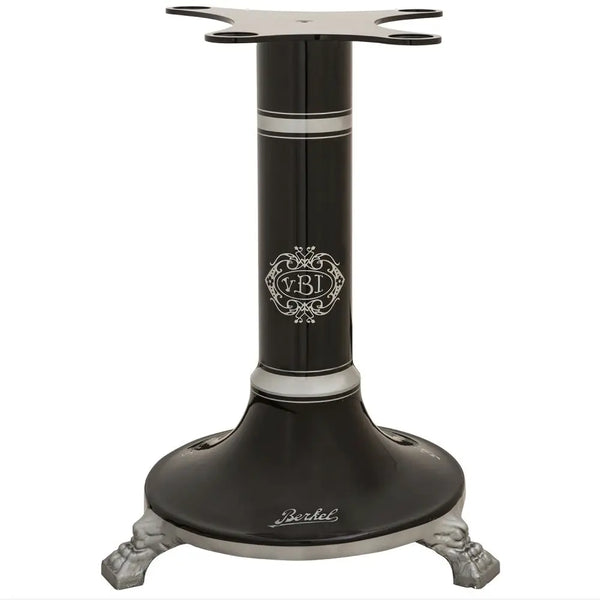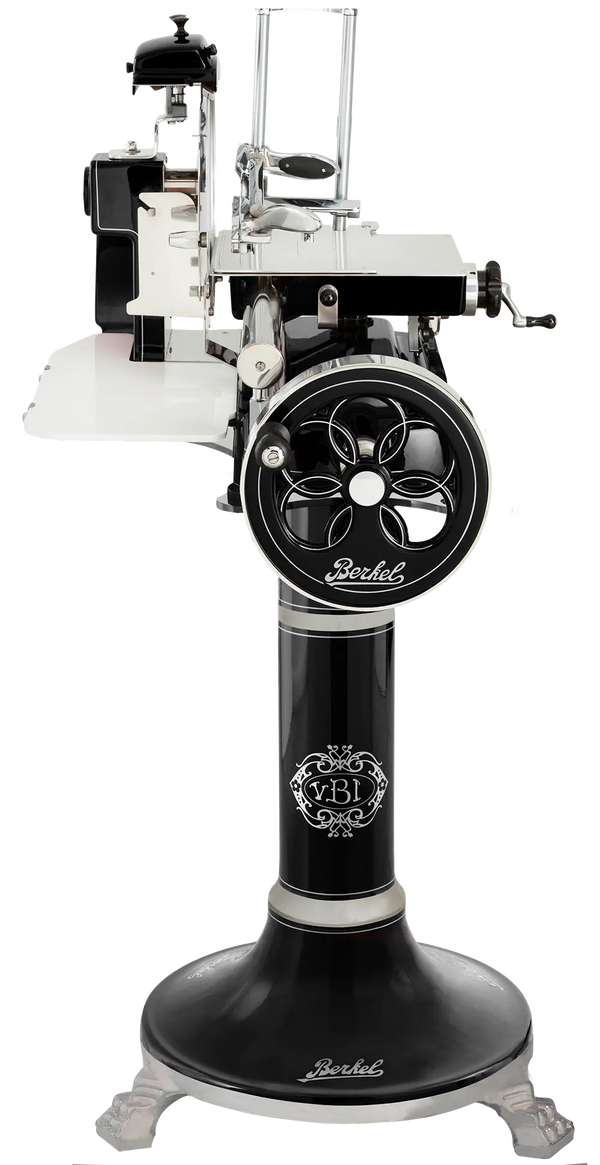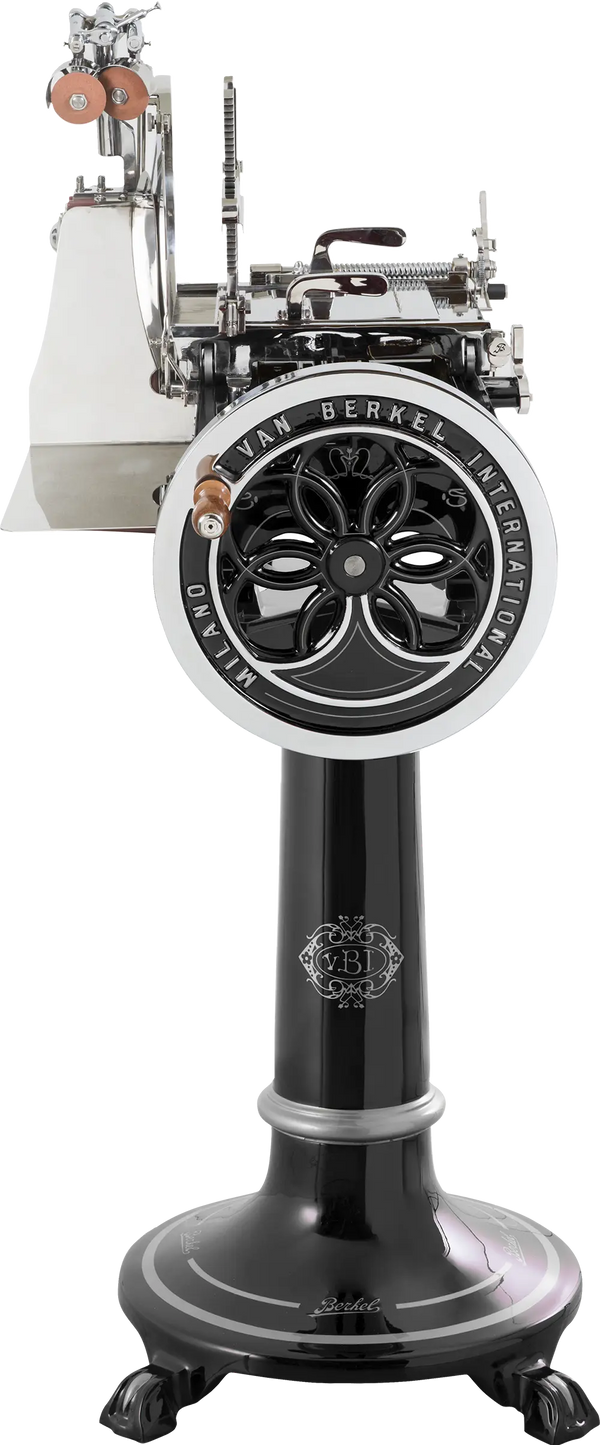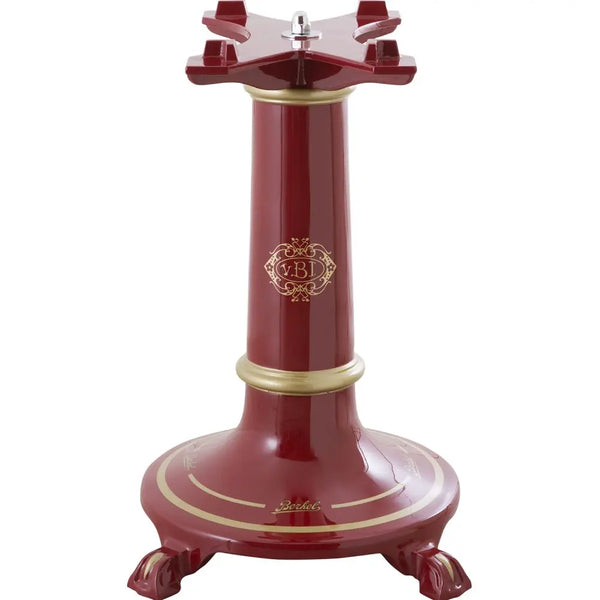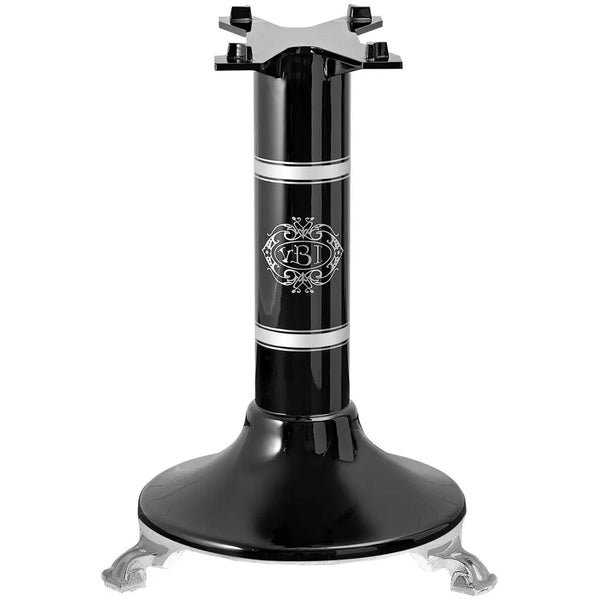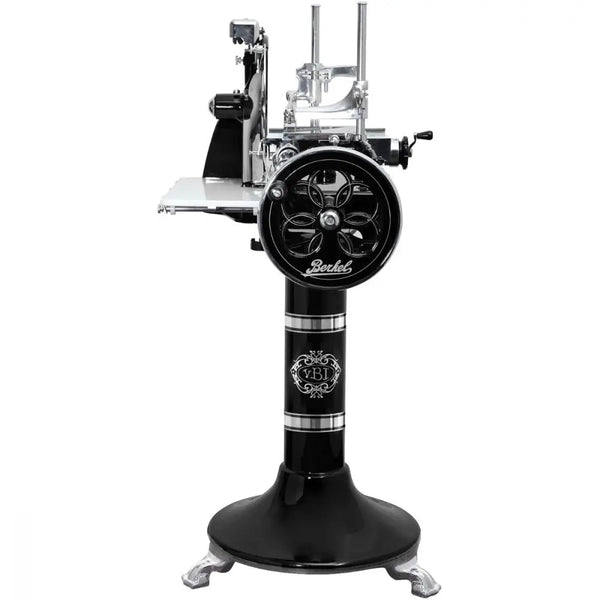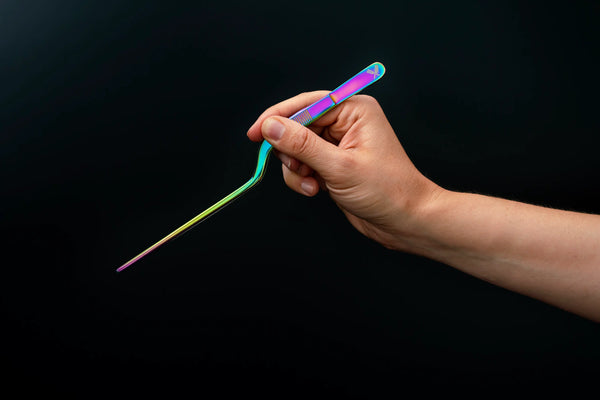The history of the Berkel brand is unique. The company was founded by master butcher Wilhelmus Adrianus van Berkel over 130 years ago in Rotterdam. He considered how to simplify and speed up the previously laborious process of cutting meat, ham, and sausage.
The ideas and developments culminated in a patented slicing machine. Berkel's new development consisted of a hand-cranked table that pushed toward a sharp, curved, rotating blade. In later development stages, grinding heads were attached to the blades to ensure their permanent sharpness.
Berkel founded his production and distribution company in 1898.
The machine was far ahead of its time and so ingenious that 84 units were built and sold in the first year after the company's founding. Machines from the early days of the Berkel company are now sought-after and expensive collector's items.
Records show that over 2,700 machines were sold in 1908, demonstrating the rapid development of the Berkel company. This enormous number was already exported to many countries. Berkel established subsidiaries in numerous countries around the world.
The large flywheel machines are Berkel's origins, and in the food industry, Berkel is almost exclusively associated with them. Due to their size and price, these amazing machines aren't affordable for everyone. Many people can't fit a 50-kg machine on their kitchen countertop. Many also can't spend several thousand euros on a slicer, no matter how impressive it is.
For this purpose, Berkel has launched a series of electric machines. They incorporate many of the features of professional machines, while retaining safety and compactness in the typical, unmistakable Berkel design. Following the Home Line, the "Red Line" series of machines is more geared toward professionals and is even more powerful.
